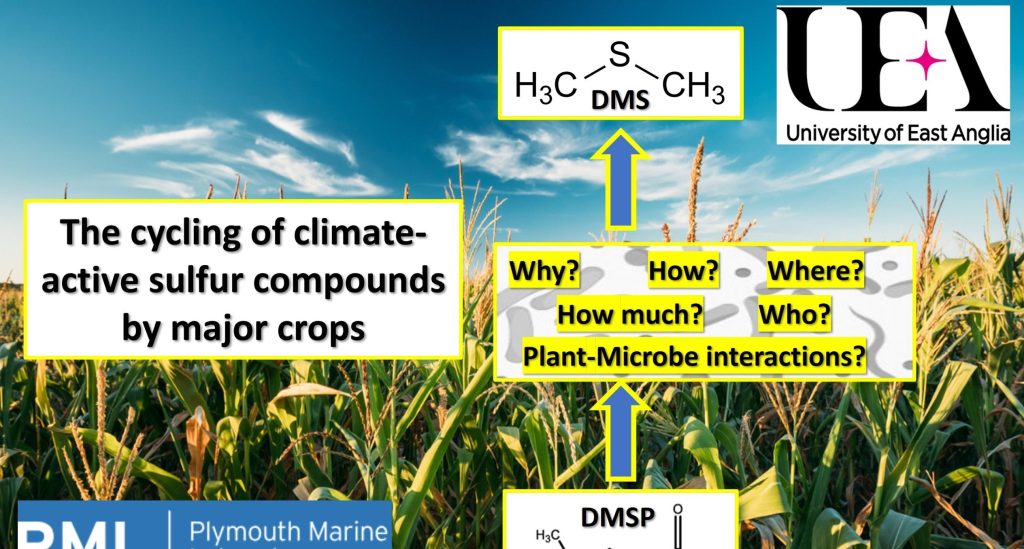Project Description
Supervisors
Professor Jonathan Todd, Biological Sciences, University of East Anglia – contact me
Dr Benjamin Miller, UEA BIO
Dr Francis Hopkins, Plymouth Marine Laboratory

Scientific background:
Dimethylsulfoniopropionate (DMSP) is known as a marine anti-stress compound made by algae and bacteria. It has key roles in global nutrient and sulfur cycling, signalling, and microbial DMSP catabolism releases climate-active gases (CAG), notably dimethylsulfide (DMS). However, DMSP is also produced by many terrestrial plants, including maize that is farmed to 1.22 billion metric tons annually, and is found at appreciable levels in maize rhizosphere samples. Little is known about microbial DMSP catabolism in terrestrial plant settings and key questions remain unanswered, e.g., what microbes degrade plant-made DMSP, which pathways do they use and what is their impact on CAG production?
Methodology:
This multidisciplinary PhD will address these unknowns by working on maize cropped in East Anglia. The individual will conduct a seasonal field study of DMSP production and cycling on maize plantations. DMSP production, accumulation, microbial catabolism and CAG flux will be investigated at the process (using e.g., gas chromatography and autonomous DMS sensors) and molecular (using e.g., RT-qPCR) levels in/from plant tissue and soils –to explore their environmental significance. To complement this process-led work, the PhD will conduct culture-dependent (isolation and characterisation of model organisms) and -independent microbiology (e.g., DNA-stable isotope probing) to identify microbes importing and catabolising DMSP as a nutrient in maize samples, their biodiversity, the pathways used, the CAG liberated and how environmental changes impact these. Finally, they will be encouraged to develop the project to their interests, e.g., to investigate plant growth promoting effects of microbial isolates or novel DMSP cycling genes.
Training:
You will join the productive and well-resourced teams of Todd and Miller at UEA and Hopkins at PML, and receive exceptional interdisciplinary training spanning DMSP biology, molecular ecology and microbiology, plant physiology, bioinformatics, analytical chemistry, fieldwork and in scientific writing and presentation. You will present your findings at weekly team meetings, (inter)national conferences, and in peer-reviewed scientific publications and your PhD thesis.
Person specification:
We require a motivated and innovative individual keen to master a wide range of techniques within our team studying DMSP biology. You require a background in micro/biology.
Acceptable first degree subjects: microbiology
